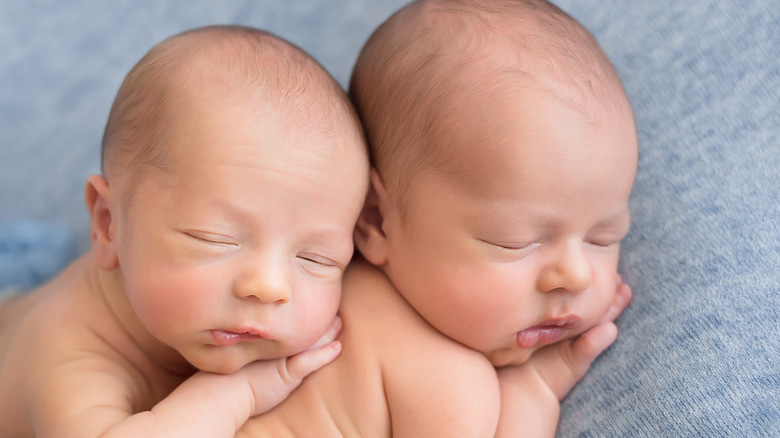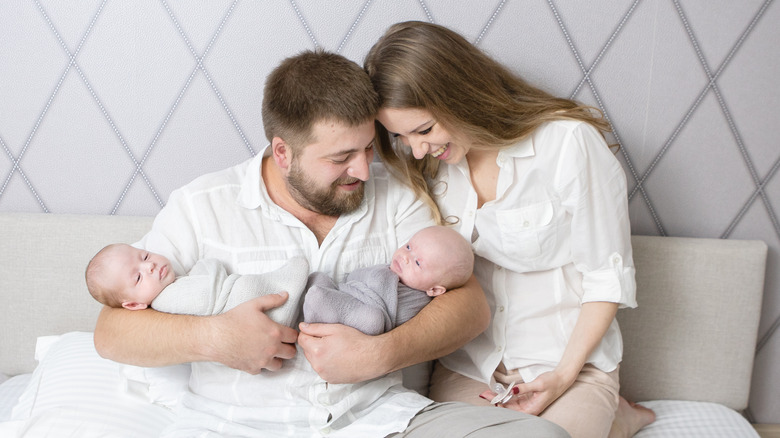How IVF Can Increase Your Likelihood Of Having Identical Twins
With the advancement of medical technology and the introduction of various fertility treatments, the chances of people achieving a successful pregnancy have significantly improved over the years. And owing to that, many couples are opting for fertility treatments to have a baby.
A Pew Research Survey shows that 33% of adults living in the United States have either undergone fertility treatments or know someone who has. Meanwhile, since the mid-1990s, more than one million babies born in the United States were conceived with the help of fertility techniques, data collected by the Centers for Disease Control and Prevention (CDC) shows.
Speaking about Assisted Reproductive Technology (ART), an umbrella term for all fertility treatments in which either eggs or embryos are handled, in vitro fertilization – commonly known as IVF — is the most common technique, according to the CDC.
As explained by Planned Parenthood, IVF requires doctors to take eggs from a person's ovaries and get them fertilized by sperm in a laboratory. Upon successful fertilization, an embryo is developed, which is then implanted into the uterus.
Considering that the procedure takes place in a laboratory, the number for couples desiring twin babies through IVF has also increased over the years. Some couples even believe that the procedure will increase the likelihood of having identical twins. But is it true?
Why do couples want twins through IVF?
According to WebMD, many couples have started demanding twins when undergoing IVF, and there are several reasons for that. Firstly, the procedure is quite expensive, and as per the information provided by Reproductive Facts, the average cost of an IVF cycle in the United States is $12,400. For this reason, couples want to have two children at the same time instead of going through the procedure again and paying anew.
Secondly, many people decide to opt for IVF when they are nearing the end of their reproductive years, so they desire to have twins instead of a single child. Lastly, during their ART journey, many couples end up being exhausted and frustrated because of the lengthy struggles they have to endure before achieving a successful pregnancy, so they desire twins instead of a single child as they're not ready to go through the process again.
Speaking to WebMD, Dr. Mark Perloe, medical director of Georgia Reproductive Specialists in Atlanta, said that couples, while undergoing IVF, mention their desire for twin babies "all the time."
Doctors say that while the desire for twins among IVF couples is common, they often fail to understand the risks associated with such pregnancies.
Chances of having identical twins through IVF
A couple can increase their chances of having twins through IVF by increasing the number of embryos transferred to the uterus after fertilization in the lab. Some couples, however, only prefer transferring one embryo into the uterus, and that one embryo could also split, resulting in identical twins (via Healthline).
According to Creating A Family, people "using IVF are also two to eight times more likely to have identical twins." If the splitting of the embryo were to take place, the process happens within the first two weeks of fertilization. This can result in several types of monozygotic twins, according to the Virginia Center for Reproductive Medicine.
Even though having twin babies is adorable, they are at a higher risk of being born prematurely or developing health-related complications later in life, while identical twins conceived through fertility treatments are more vulnerable to these complications.
"The good news is that research had found that 95% of identical twins after IVF have two amniotic sacs, avoiding one of the riskiest twin pregnancies where both babies are in the same amniotic sac," Creating A Family explains.
Nonetheless, couples desiring identical twins through IVF — or twins for that matter — should think twice before deciding and consult their doctors for all types of risks associated with the procedure.


